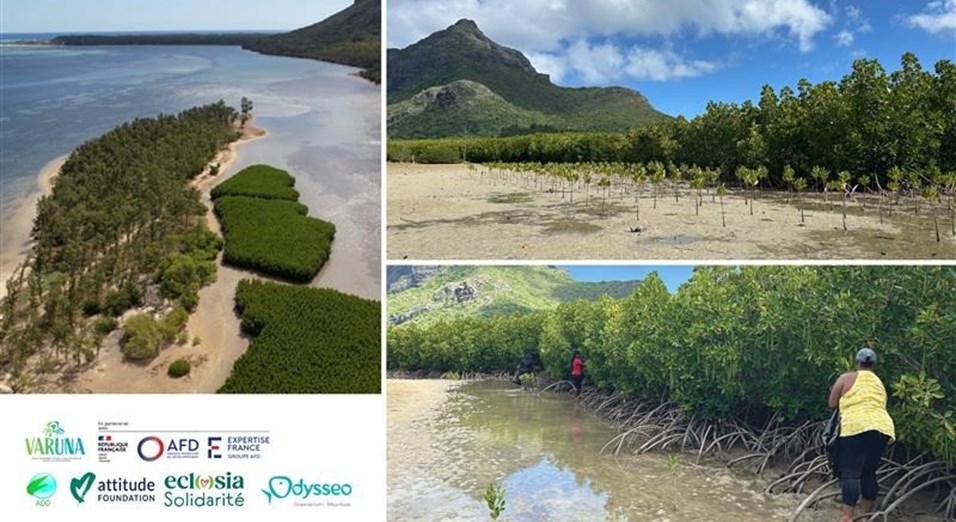They are developing a unique honey in Mauritius

After getting their hands dirty to help revive the coastal ecosystems of Le Morne and Case Noyale, seven women are taking a new step forward. Today, they are training to become entrepreneurs – but not just any kind. They’re about to launch a project deeply rooted in nature: the production of mangrove honey, a product never before seen in Mauritius.
Gathered on the first Friday of July in the Caritas hall in Le Morne, they are attending a workshop organized by Eclosia Solidarité: “Advice for Women Entrepreneurs – Starting a Small Local Business and Promoting It on Social Media.” A practical, action-oriented training session: finding a name, registering a business, building a budget, and learning to communicate – both in person and online.
But this journey is part of a broader movement. These women are active participants in the “Blue Carbon Ecosystem Restoration” project, implemented by the Odysseo Foundation, ADD, Attitude Foundation, and Eclosia Solidarité, and funded by the French Development Agency (AFD) in the Indian Ocean region under the Varuna Biodiversity program. Their entrepreneurial training is an integral part of this initiative. The goal? To combine local economic development with environmental protection.
By becoming beekeepers, these women are doing more than just creating a source of income. They are bringing value to a fragile ecosystem. Mangrove honey – with its unique taste, appearance, and specific properties – is a new product in Mauritius. Its production depends directly on the health of the mangroves. By building an economic activity around this environment, the community becomes an active player in its preservation.
It’s a form of circular, sustainable, and inclusive economy. Planting, protecting, harvesting, transforming, selling. Through this project, mangroves are no longer seen only as areas to be restored, but as living assets to be nurtured and enhanced.
For these women, this journey is about more than just starting a business. It’s a way to root themselves in their territory, to help a new industry emerge, and above all, to prove that development and conservation can go hand in hand. And that is a quiet revolution.
